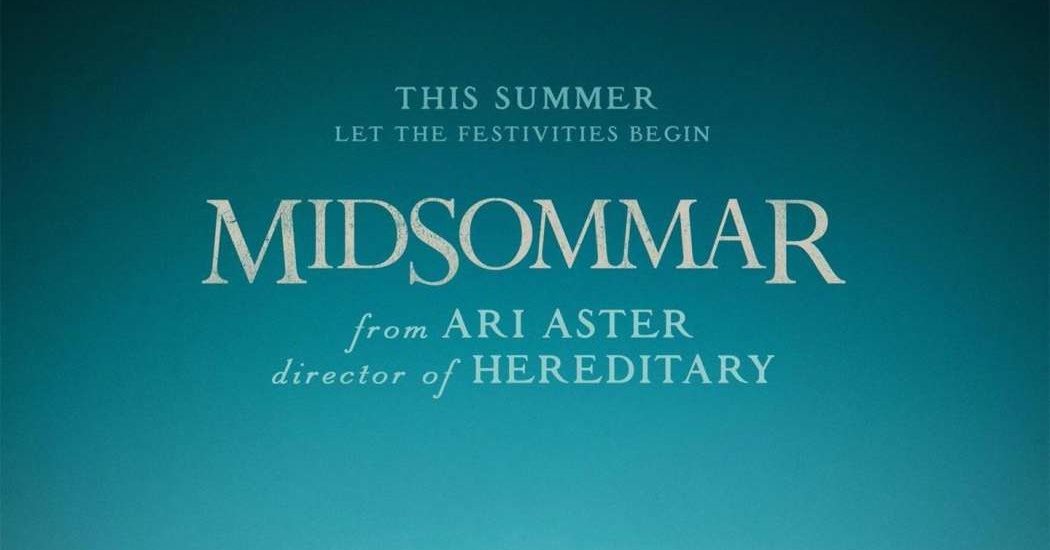
Midsommar Review
Ari Aster proves that 'Hereditary' was no fluke with 'Midsommar.'
Release Date: July 3, 2019
MPAA Rating: R
A couple travels to Sweden to visit a rural hometown’s fabled mid-summer festival. What begins as an idyllic retreat quickly devolves into an increasingly violent and bizarre competition at the hands of a pagan cult.
Director: Ari Aster
Screenwriter: Ari Aster
Producers: Patrick Andersson, Lars Knudsen
Cast: Florence Pugh (Dani), Jack Reynor (Christian), William Jackson Harper (Josh), Will Poulter (Mark), Vilhelm Blomgren (Pelle), Ellora Torchia (Connie), Archie Madekwe (Simon)
Editor: Lucian Johnston
Cinematographer: Pawel Pogorzelski
Production Designer: Henrik Svensson
Casting Directors: Jessica Kelly, Jeanette Klintberg
Music Score: The Haxan Cloak
Production

After last year’s terrifying Hereditary, horror fans have been waiting patiently for director Ari Aster’s next epic opus. And that wait is over. Midsommar is here. But it’s not quite the movie that horror fans might think it is.
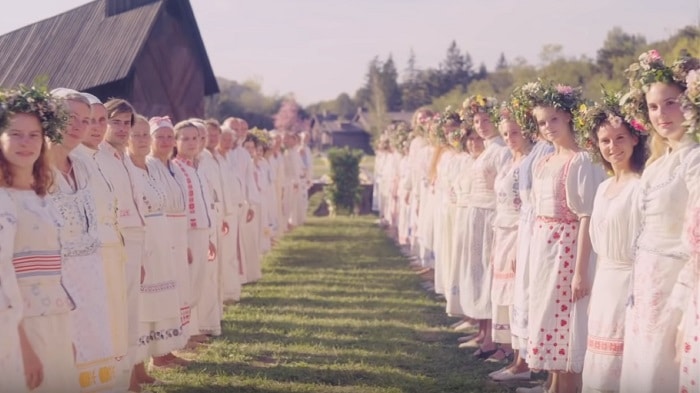
Midsommar is about a young woman named Dani (Lady Macbeth’s Florence Pugh) who is both grieving from the loss of her parents and sister, and feeling tension between herself and her boyfriend, Christian (Jack Reynor from Free Fire and Sing Street). Christian and his friends, Josh (Paterson’s William Jackson Harper) and Mark (Will Poulter from The Revenant), have planned a trip to the Swedish village of their other friend, Pelle (Vilhelm Blomgren from the upcoming Swedish HBO show “Gösta”), for the Midsommar festival, and in an effort to repair the only relationship she has left, Dani decides to tag along. Once at Pelle’s village, the friends find that the festival is not quite the feel-good party that they had hoped it would be.
There is no slump with Ari Aster’s sophomore effort. Midsommar is nothing short of brilliant filmmaking. It is both economical and ambitious, with painstaking attention paid to every single detail of what is essentially a single-set movie. There are no wasted moments in Midsommar. Every scene, every shot, every frame is meticulously crafted and exists for an important reason. It’s more than just a film school exercise, though. It’s got energy, electricity, and emotion. It’s masterful.
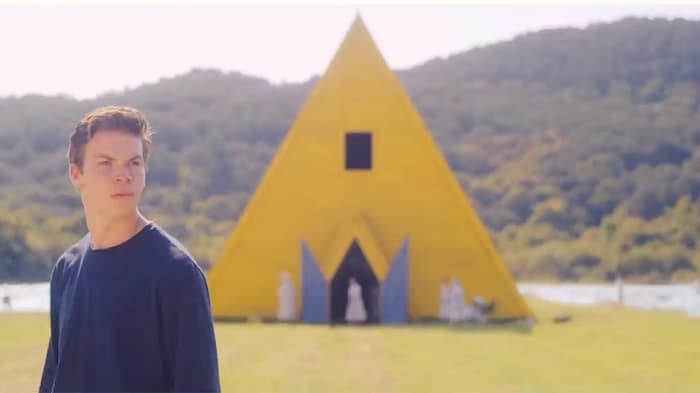
That technical mastery doesn’t interfere with the plot, either. While its hard to say that the characters are likeable, there is an investment on the part of the audience, especially in the fate of Dani. The gradually unfolding series of events is engrossing on a curiosity-killed-the-cat level. It’s one of those movies that’s like a conveyor belt for the audience. You can’t stop watching even if you want to. Thankfully, you don’t want to.
Midsommar is haunting in its simplicity. The paganistic rituals and hedonistic drug use invoke shades of Robin Hardy’s The Wicker Man and Gaspar Noé’s Climax, but Aster does it all in a way that makes the one-note storyline all his own. The narrative keeps the audience guessing and hanging on every second of the movie as the mystery unravels. The film is full of uncomfortable humor that is born out of absurdity, and it only stops being funny when it becomes apparent that the villagers are not laughing along. Oh, and to top it all off, Midsommar’s got what will probably be the most memorable sex scene of the year. Not the best, just the most memorable. Because there’s nothing sexy about it. But like the rest of the movie, it has to be seen.
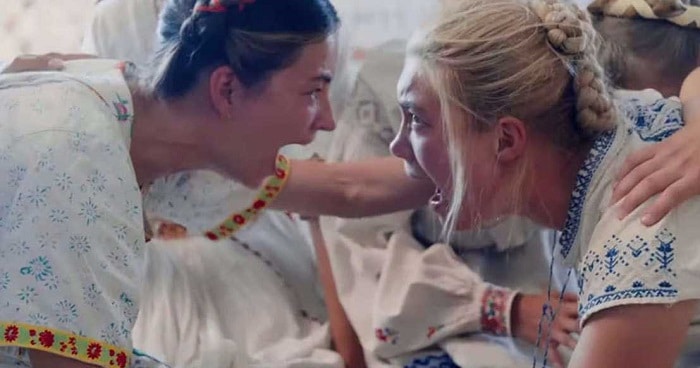
Midsommar proves to moviegoers that Hereditary was no fluke, and that Ari Aster is truly a visionary filmmaker. And, at least until he loses that vision, every single movie he makes will be well worth watching. He’s earned that respect.
Cinematography

For Midsommar, Ari Aster once again called upon his Hereditary cinematographer, Pawel Pogorzelski, for the photography. Both Aster and Pogorzelski know how the human eye works and have a knack for using the entire field of vision to hide things in plain sight. Midsommar is full of long, wide shots that drink in the locations and scenery, only revealing the main subject of the frame after the viewer has combed over every inch of the image. These long takes are often accompanied by camera motion, sometimes slight and other times manic, that allows the story to unfold naturally and deliberately, with the actors taking charge of the camera instead of the other way around.
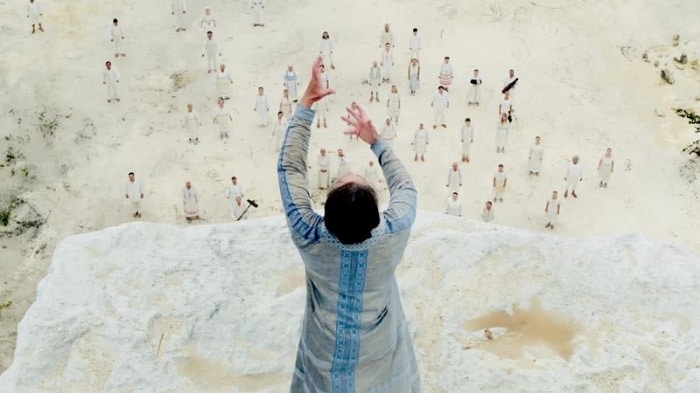
Midsommar is a very bright movie, particularly once the kids arrive at their destination in the Swedish countryside. The sun doesn’t set in the summer months in Sweden, and Midsommar uses this little tidbit of trivia to shine the light – literally – on everything that is happening in the village. Which makes Midsommar a very unique film; it deals with dark and shadowy subjects without the benefit of dark and shadowy lighting. It’s all out in the open, which makes the movie that much more distressing.
Scary Factor

Aside from a few “oh, sh*t!” moments, there’s no real nightmare fuel in Midsommar. Hereditary was, of course, one of the most horrifying movies of last year, but Aster seems to have gone for a softer, more subtle approach with Midsommar. There’s no constant underlying feeling of dread and despair, so the audience is allowed to relax for stretches of the movie. However, the cult/commune concept is freaky, and the slowly simmering ritual gets very disturbing once it boils over. Brutality and violence is used sparingly enough for it to pack a huge wallop once it does happen, which seems to be Aster’s point. What little horror there is in Midsommar is generated mostly by imagery and ideas rather than by actual incidents and events. This is the type of movie that jaded horror fans will denounce as “not being horror,” and truthfully, they’d have a valid point. It’s unsettling and creepy, but not as scary as fans of Hereditary might expect it to be.

